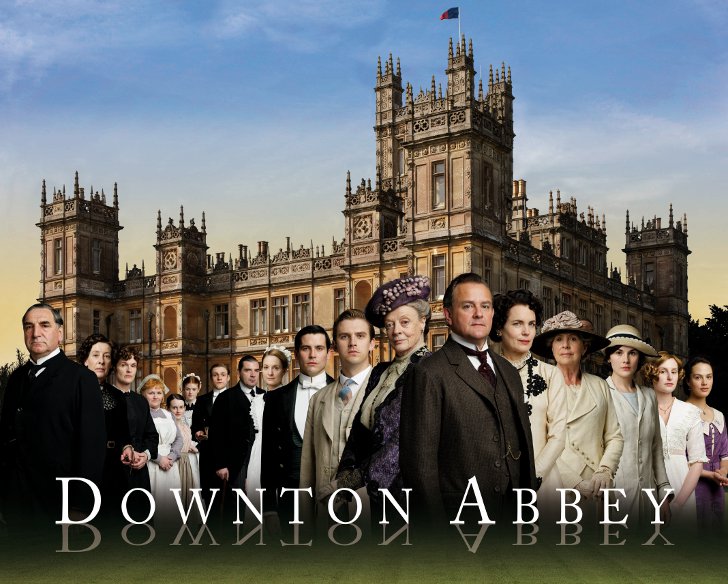Who'd have thought that an ITV costume drama could have created the public and critical acclaim which now surrounds Downton Abbey. From the pen of Julian Fellowes, Oscar winner for his Gosford Park screenplay, many would suggest that the success of Downton was a forgone conclusion.
Essentially, the series encapsulates the iconic Edwardian period of British history, an era of social and political change. Downton Abbey is the stately home of the Crawley family, and the drama studies the complex relationships of the home's inhabitants, both the aristocrats and their servant workforce. In broad terms, Downton is perhaps unfairly regarded as the revamped version of the 1970s series Upstairs, Downstairs.
Downton effortlessly recreates the grandeur of aristocratic life alongside the harsh reality of servitude. The bright, plush 'upstairs' of the house contrasts sharply to the dimly lit servant quarters hidden below the artifice of luxury. The attention to detail regarding costumes, medicinal treatments, transport and even servant activities is to be applauded.
I must confess, I wasn't always an avid fan like I am now. The first episode, which obviously has to establish plotlines and characters, wasn't a huge draw for me, a self-confessed BBC period drama fan. The sinking of the Titanic, the catalyst for the story, was sparsely covered, and the overarching theme of inheritance and bloodlines was confusingly established. By episode three however, the background story was firmly rooted and characters were fully formed, helping to carry the various intertwining bi-stories along. The most focus in the series so far has been on rebellious daughter Lady Mary's fall from grace and her family's attempt to marry her off to preserve the Crawley inheritance and her virtue. In contrast, I feel that Lady Sybil's involvement with the burgeoning suffragette movement could have received more coverage, especially as this is one of the defining moments of the era in which the drama is set.
The cast is of a high standard, particularly Dame Maggie Smith as the Dowager Countess of Grantham. She easily delivers the best one-liners, complementing her portrayal as a traditionalist busybody. Another notable performer is Rob James-Collier, a footman committing dastardly deeds in order to fulfil his desires for a better professional position.
On paper, the characters seem to be two dimensional carbon copies from any other period drama. The interfering matriarch, the hotheaded pretentious youth, the sweet natured working class girl who MUST get together with the sweet but flawed working class man...
Despite this, it is a formula which works spectacularly. Downton explores the complexities of relationships across class and gender lines in a bygone era, evoking a sense of nostalgia within a modern audience who can compare past and present societal norms and mores. Or, quite simply, it is escapist viewing from the bankruptcy and dreariness of the modern world. What Downton does particularly well is to highlight the lack of moral disparities between the aristocratic Crawley family and their servants. Appearances can be deceiving. We are shown the Edwardian traditions and etiquette which attempts to maintain a rigid hierarchy, but are privileged with the knowledge that class and money do not breed model citizens.
I eagerly await the final episode of this series. I hope it lives up to expectations! The second series has already been commissioned, so I'm fully expecting more exploration into women's rights, but significantly World War One. The bar for television period dramas has definitely been raised.

No comments:
Post a Comment